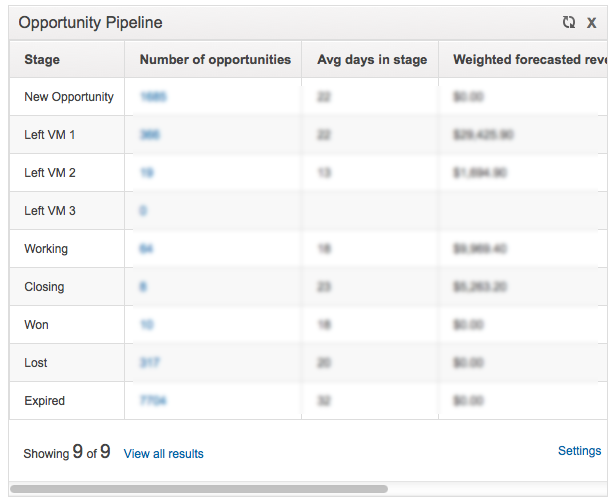Keeping track of your prospects through your sales pipeline is one huge aspect that separates newbie small businesses from those generating serious income and impressive conversion rates.
I recently listened to a fantastic interview on Mixergy with Justin Roff-Marsh — the Founder of Ballistix, a management and marketing consultancy, specializing in Sales Process Engineering. I generally love everything on Mixergy, but this one really piqued my interested since my background is in engineering and systematically breaking down and optimizing a process.
Sales: Person or Process Driven?
Justin makes a fairly outlandish claim in the world of traditional sales: that the effectiveness of a sale is centered around the optimization of the sales process, not the salesperson. He makes the comparison of modern manufacturing methods compared to the artisan era of building.
We know that by tracking the history of manufacturing — accuracy and repeatability increase exponentially over time when using an assembly line (where each step can be broken down into its smallest pieces and optimized) as compared to a single craftsman building the entire widget from start to finish.
Justin believes that similar to manufacturing – sales can be improved by breaking each step of the process into its smallest elements, optimizing, and focusing each member of the sales force on being razor sharp at one particular piece of the process.
Automating and Optimizing Sales to Increase Conversion Rate
Whether you agree or disagree with his premise, we can learn from his company’s success and emulate his process through automating marketing and sales procedures.
In Infusionsoft, we have an incredibly useful tool at our fingertips: The “opportunity” sales pipeline. Using this tool effectively ensures that each prospect in the pipeline receives the same process and the sale isn’t dropped through the cracks.
Take a look at this sample opportunity pipeline in Infusionsoft:
Keep in mind that this process should be reflective of your business staff and operations — but it’s a great example to showcase the process. As a new lead comes into the process, he or she is marked as a “new opportunity” and the sales team is notified. If a direct phone call connection cannot be made at first, the sales team must leave 3 voice mails trying to connect — this builds consistency and helps to make scientific observations about where the process needs improvement.
After working the prospect and attempting to make a sale, the sales rep will mark the sale as “won” (and indicate which product was sold) or “lost” with a reason that the prospect was not able to be converted into a customer. This is fantastic from an analytical standpoint. Given enough data, we can start to determine where the holes exist in the sales process and make corrections iteratively!
This system scales with the complexity of the sales process, but it can and should be applied to any business that is selling products (aka all of them!).
What pieces of this methodology could you implement in your business? Need help setting it up? Contact us!



Thanks for linking to Justin’s interview on Mixergy!
No problem, I really enjoyed that one! 🙂
Thanks for linking to Justin’s interview on Mixergy!
No problem, I really enjoyed that one! 🙂
[…] Before you invest in team support, you need to map out your sales process so you know when these conversations SHOULD happen and the best tactics to convert the prospect into a customer. Once you know the when and the how, you can teach your team how to help! […]
[…] Before you invest in team support, you need to map out your sales process so you know when these conversations SHOULD happen and the best tactics to convert the prospect into a customer. Once you know the when and the how, you can teach your team how to help! […]